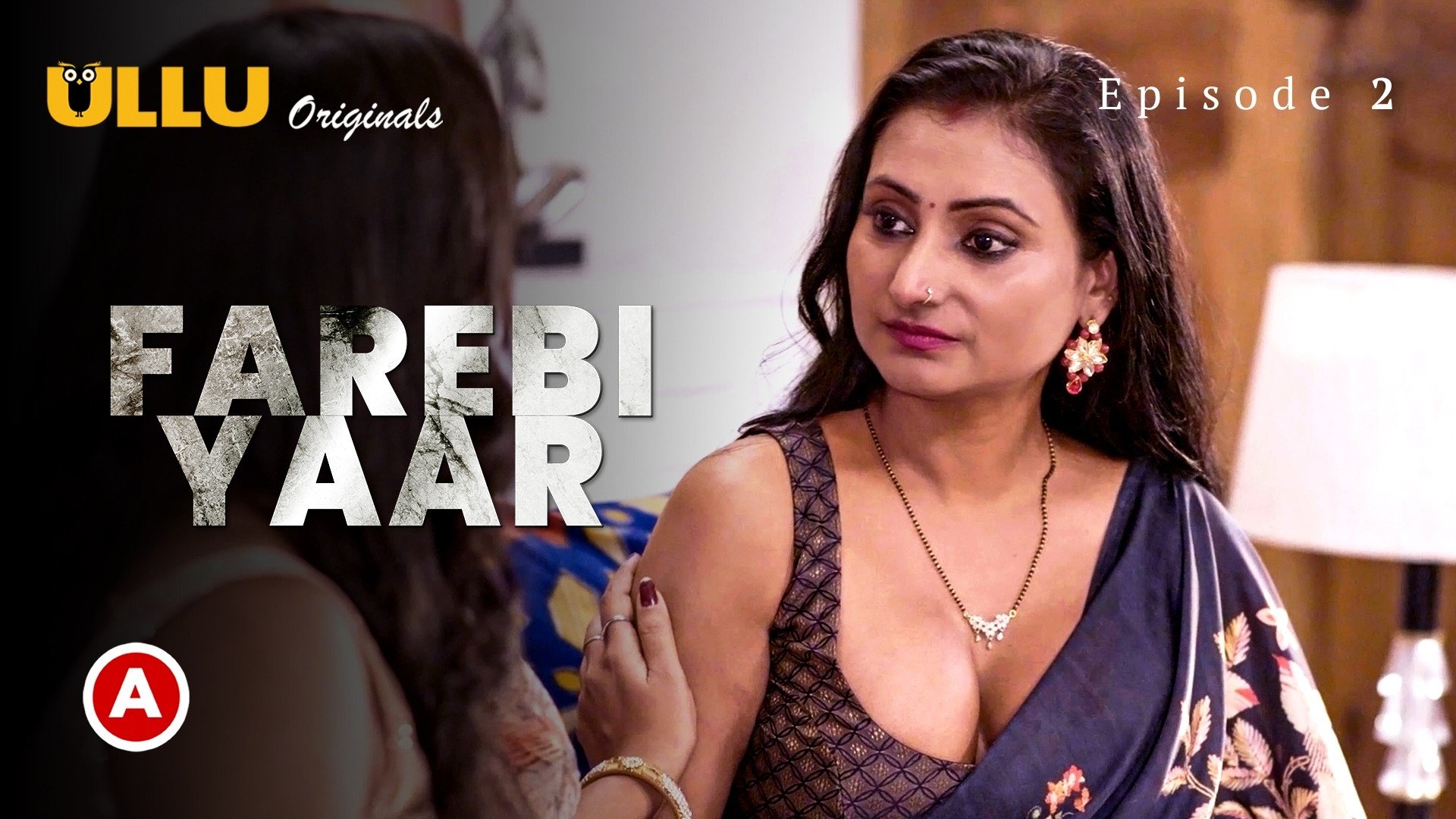Understanding The Nature Of A Farebi Yaar: Spotting Deceit In Friendships
It is a difficult thing, really, when someone you trust deeply, a person you call a friend, shows a different side, one that is not at all what you expected. This experience, often called encountering a 'farebi yaar,' can shake your very sense of what friendship means. It leaves a mark, certainly, and can make you question bonds you thought were solid.
A 'farebi yaar' describes, in a way, a friend who turns out to be deceitful, someone who acts with hidden motives or even betrays your trust. It is a concept that resonates with many, because, let's be honest, almost everyone has faced a moment where a bond felt less than genuine. This feeling, that something is just a little off, is a common thread in human connections.
Recognizing such a person, and then figuring out how to deal with the feelings that come with it, is a pretty important part of life's journey. This discussion will explore what a 'farebi yaar' truly means, the signs to watch for, and how to move forward when you find yourself in such a situation. It's about finding clarity in confusing times, you know.
Table of Contents
- What Exactly is a Farebi Yaar?
- The Subtle Signs of Deceit in a Friendship
- The Emotional Weight of Betrayal
- Rebuilding Trust or Moving On: Steps to Consider
- Protecting Yourself Going Forward
- Frequently Asked Questions About Farebi Yaar
What Exactly is a Farebi Yaar?
The term 'farebi yaar' comes from a language that speaks of a 'deceitful friend.' It points to someone who pretends to be a close companion but harbors intentions that are not good for you. This is not just about a simple disagreement or a misunderstanding that friends might have; it goes much deeper, touching on a deliberate act of misleading or taking advantage. It's about a bond that feels, essentially, like a performance.
When you have a 'farebi yaar,' the friendship often feels one-sided, perhaps. You might be giving a lot, offering support, kindness, and time, while the other person seems to be taking, or even subtly undermining you. It is a relationship built on a false sense of security, where the true nature of the other person remains hidden behind a mask of camaraderie. This can be quite jarring, really, when the truth starts to show.
Think about it this way: when you plan a trip, you might use a service that offers multi-destination flight searches, making it easy to sort out a complex journey. You expect that service to show you all the routes clearly, without any hidden stops or unexpected charges. A 'farebi yaar' operates in a way that is quite the opposite; they introduce hidden elements into the friendship, making the journey of your connection less straightforward and more confusing, almost.
They might use your trust for their own benefit, perhaps spreading rumors, taking credit for your efforts, or even turning others against you. This sort of behavior can feel very disorienting, especially when it comes from someone you considered a safe harbor. It is a betrayal of the deepest kind, as it shatters the very idea of mutual support and genuine care that true friendships are built upon. So, identifying this kind of friend becomes important for your well-being.
Understanding this concept is the first step toward recognizing such relationships in your own life. It helps put a name to a painful experience, allowing you to begin processing the feelings that come with it. It's about seeing the situation for what it is, without sugarcoating the reality of it, which is, in some respects, a very brave thing to do.
The Subtle Signs of Deceit in a Friendship
Spotting a 'farebi yaar' can be tricky, because their actions are often subtle, designed not to immediately raise alarms. One common sign is inconsistency between their words and their actions. They might say they support you, but then you notice them doing things that clearly go against your best interests. It's like when you check a flight status; you look for the flight number, say CA123, expecting it to match the information you have. If the details are off, even slightly, you start to question things, right?
Another indicator is a lack of genuine happiness for your successes. A true friend celebrates with you, feeling your joy. A 'farebi yaar,' however, might offer lukewarm congratulations, or quickly change the subject, perhaps even trying to downplay your achievements. You might notice a hint of envy or resentment, which is, honestly, a very telling sign.
They also tend to be quite skilled at manipulation. This could involve twisting your words, playing the victim, or making you feel guilty for things that are not your fault. They might try to control situations or people around you for their own gain, often without you realizing it at first. It is a bit like trying to find specific information online; you expect clear results, but a 'farebi yaar' tends to muddy the waters, making things unclear, you know.
A 'farebi yaar' often gossips, and not just about others, but about you too, behind your back. They might share your secrets, or spread rumors that damage your standing. This behavior is a clear violation of trust. It is similar to how you would expect your personal information to be secure when you sign in to an account; you trust that it will be protected, and when it is not, that trust is broken, obviously.
They might also appear only when they need something from you, disappearing when you need support. Their interest in the friendship seems to depend entirely on what they can gain. This transactional approach to friendship is a huge red flag, really. Genuine connections are not about what you can get, but about mutual care and presence, through good times and bad, basically.
Finally, pay attention to your intuition. Sometimes, you just get a feeling that something is not quite right, even if you cannot pinpoint why. That gut feeling, that sense of unease, is often your inner self trying to tell you something important. It is worth listening to, because, at the end of the day, your feelings are valid indicators of what is happening around you.
The Emotional Weight of Betrayal
Discovering that a 'farebi yaar' has been part of your life can bring about a wave of very strong emotions. The initial shock can be overwhelming, followed by deep hurt and disappointment. It is a feeling of being let down by someone you truly believed in, which is, arguably, one of the hardest things to experience. You might feel a profound sense of sadness, almost a grieving for the friendship you thought you had.
Anger is another common response. You might feel angry at the 'farebi yaar' for their deceit, and perhaps even angry at yourself for not seeing the signs earlier. This anger is a natural part of processing betrayal, a way your mind reacts to a perceived injustice. It is important to acknowledge these feelings, rather than trying to push them away, as they are part of the healing process, you know.
Confusion often accompanies these feelings. You might replay past interactions in your mind, trying to understand where things went wrong, or if the friendship was ever real to begin with. This questioning can be exhausting, as your mind tries to make sense of something that seems to defy logic. It is like trying to find a specific piece of information when the search results are not clear; you keep digging, hoping to find an answer, but the path feels unclear, more or less.
Betrayal can also lead to a significant blow to your self-worth. You might start to doubt your judgment, wondering if you are somehow to blame for what happened. It is vital to remember that the actions of a 'farebi yaar' are a reflection of their character, not yours. Their deceit says nothing about your worth as a person or your capacity for genuine friendship. You are, quite simply, a good person who trusted someone who was not trustworthy.
The experience can also make you wary of future relationships. Building trust again can feel like a very daunting task, as the fear of being hurt again lingers. This is a natural protective mechanism, but it is important not to let one bad experience close you off to the possibility of healthy, supportive connections. Healing takes time, and allowing yourself to feel these emotions is a crucial step in moving forward, basically.
It is okay to feel everything you are feeling. These emotions are valid responses to a painful situation. Giving yourself permission to process them, perhaps by talking to someone you trust, or by writing down your thoughts, can help you navigate this difficult period. This is a moment for self-compassion, truly.
Rebuilding Trust or Moving On: Steps to Consider
Once you recognize a 'farebi yaar' in your life, you face a choice: try to mend the bond, or step away from it. This decision is a very personal one, and there is no single right answer. If you decide to try and rebuild trust, open and honest communication is absolutely key. This means expressing how their actions affected you, clearly and calmly. It requires the other person to acknowledge their behavior, show genuine remorse, and commit to changing. If they are unwilling to do this, then rebuilding is likely not possible, you know.
Setting clear boundaries is also essential, whether you try to mend things or move on. This means deciding what you are and are not willing to accept in a friendship. If the person continues to exhibit deceitful patterns, even after a conversation, then protecting your emotional well-being becomes the priority. It's about drawing a line, which is, in some respects, a very strong thing to do.
Sometimes, the best path is to distance yourself from the 'farebi yaar.' This does not mean you are weak; rather, it shows strength and self-respect. Ending a friendship, even a toxic one, can be painful, but it creates space for healthier relationships to enter your life. It is like when you choose a specific flight route; sometimes you realize a certain connection just does not work, and you need to pick a different path to reach your destination, more or less.
Focus on self-care during this period. Betrayal can be emotionally draining, so make sure you are looking after your own needs. This could involve spending time with people who genuinely care about you, engaging in activities you enjoy, or seeking support from a counselor or therapist. Your mental and emotional health are paramount, basically.
Remember that you are allowed to choose who you keep in your inner circle. Not every relationship is meant to last forever, and some serve as lessons rather than lifelong companions. This realization can bring a sense of peace, allowing you to let go of what no longer serves you. It is about understanding that your peace of mind is incredibly valuable.
It is a process, not a single event. Healing takes time, and there will be good days and bad days. Be patient with yourself, and allow yourself the space to feel and recover. Learn more about on our site, and find ways to support your journey. This kind of personal growth is, ultimately, a very rewarding experience.
Protecting Yourself Going Forward
After experiencing a 'farebi yaar,' it is natural to want to protect yourself from similar situations in the future. One important step is to learn from the experience without letting it make you overly cynical. While it is wise to be more discerning about who you let into your close circle, it is equally important not to assume everyone has hidden motives. Balance is key, you know.
Pay closer attention to people's actions rather than just their words. As the saying goes, actions speak louder. Look for consistency, integrity, and genuine empathy in others. Do they follow through on their promises? Do they show care when it is not convenient for them? These observations can help you gauge the authenticity of a person's character, which is, quite frankly, very important.
Trust your intuition more. That gut feeling, that quiet voice telling you something is off, often holds a lot of truth. When you meet new people, allow yourself to observe and feel without immediately committing to deep trust. Just as you might explore innovative AI products and services to see how technology can improve lives, you can also explore new connections with a healthy sense of observation, basically.
Build a strong support network of trusted friends and family. These are the people who will stand by you, offer honest advice, and help you see situations clearly. Having a reliable circle of confidants is a powerful buffer against deceitful individuals. It's about surrounding yourself with people who truly have your best interests at heart, obviously.
Also, understand that not everyone needs to be a close friend. Some relationships can remain casual, friendly, but without the deep emotional investment that leaves you vulnerable to betrayal. This approach allows you to enjoy a wider range of social connections without putting your emotional well-being at risk. It is a smart way to manage your social life, more or less.
Remember that you have the power to choose who you allow into your life. You can decide what kind of energy and influence you want around you. This empowerment is a significant part of healing and moving forward. You can always reach out to if you need further guidance on building healthy relationships. It is about taking control of your personal peace, truly.
Frequently Asked Questions About Farebi Yaar
What does 'farebi yaar' mean?
'Farebi yaar' refers to a deceitful or treacherous friend. It describes someone who acts as a friend but has hidden, often negative, intentions or ultimately betrays trust. It is a term that captures the pain of a false friendship, essentially.
How can I tell if someone is a 'farebi yaar'?
Signs often include inconsistency between their words and actions, a lack of genuine support for your successes, manipulative behavior, gossiping about you behind your back, and only showing interest when they need something. Trust your gut feeling too, you know.
What should I do if I realize a friend is a 'farebi yaar'?
You have options. You can try to communicate your feelings and set boundaries, or you can choose to distance yourself from the friendship for your own well-being. Focus on self-care and seek support from trusted individuals. Your peace of mind is very important.
- Derrick Coleman
- Clifton Powell
- Paul Hooper
- Hilton New York Fashion District
- Education Minister Of India

Farebi Yaar Web Series (2023) Cast & Crew, Release Date, Episodes

Farebi Yaar (TV Series 2023- ) - Backdrops — The Movie Database (TMDB)

Farebi Yaar (TV Series 2023- ) - Backdrops — The Movie Database (TMDB)